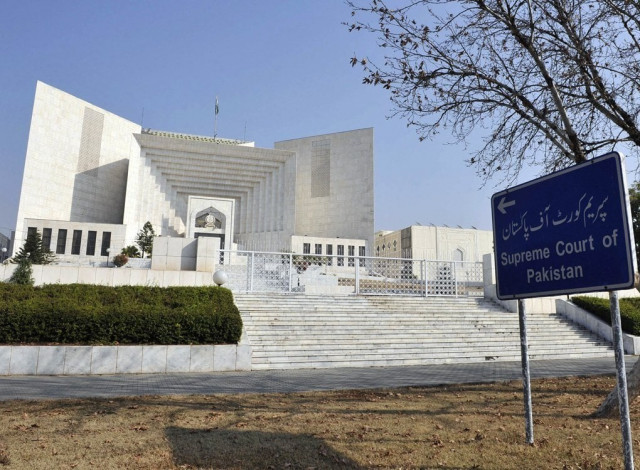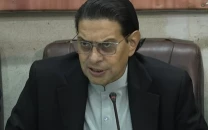No legal worth of arbitration by Taliban: Supreme Court
Rejects a ‘verdict’ issued by ‘Emarat-e-Islami Taliban, Waziristan wa Afghanistan’ in 2009

The Supreme Court has ruled that the Taliban have no legal authority to decide cases on the territory of Pakistan whose every square inch is governed by the law of the country.
A two-judge bench – comprising Justice Qazi Faez Isa and Justice Maqbool Baqar – issued this order while hearing a land dispute case in which the petitioners had presented in their defence a “verdict” issued by the “Emarat-e-Islami Taliban, Waziristan wa Afghanistan” in 2009.
Justice Isa – while authoring the three-page judgment – noted that the Taliban infiltrated into Pakistan and illegally occupied and assumed control over a part of the territory of the “Islamic Republic of Pakistan” including parts of Waziristan by mid-2005.
"Pakistan is a sovereign country and the applicable law of Pakistan applies to over every inch of its territory… every square inch of the territory of Pakistan is precious and must be kept free and safe," read the order.
The court further observed that physical possession of any part of the territory of Pakistan by the Taliban contravened the Constitution and any decision given by the Taliban would be unconstitutional, unlawful and of no legal effect.
“Subverting the Constitution and subjugating the people does not confer legitimacy on an aggressor nor renders an aggressor’s decisions constitutionally legitimate," the order read.
Some petitioners filed “a suit for specific performance" in a trial court, claiming that they had entered into an agreement on April 30, 2009 with the respondents for the sale of certain lands.
The court had directed the petitioners to lead evidence in support of their claim but the petitioners failed to provide any proof despite being granted a number of opportunities. Resultantly, the court decided to close their side and later dismissed their suit.
The petitioners later challenged the decision by filing an appeal in the Peshawar High Court (PHC). The court dismissed the appeal as well as the revision filed by them.
The petitioners later moved the SC, claiming that the trial court had not given them sufficient opportunity to lead evidence before closing their side and dismissing their suit.
The trial court’s order dated October 3, 2012 referred to an application of the petitioners in which they sought the court’s permission to prove an iqrar nama [agreement] through secondary evidence because its original was stated to be with the defendants.
During the hearing, the SC bench asked the counsel for petitioners to refer to the secondary evidence sought to be produced – a copy of the said iqrar nama. However, the counsel stated that the same was not an iqrar nama but a decision dated April 30, 2009.
"Leaving aside the question whether they could change their stance so fundamentally, we have examined the document which is a ‘decision’ issued by the ‘Emarat-e-Islami Taliban, Waziristan wa Afghanistan’. The Taliban had no legal authority to decide cases," read the judgment.
The apex court said the purported “decision” or “agreement” could neither be made the basis of a suit nor relied upon. “Therefore, leave [right] to appeal is declined and consequently this petition is dismissed,” Justice Isa stated in the order.


















COMMENTS
Comments are moderated and generally will be posted if they are on-topic and not abusive.
For more information, please see our Comments FAQ